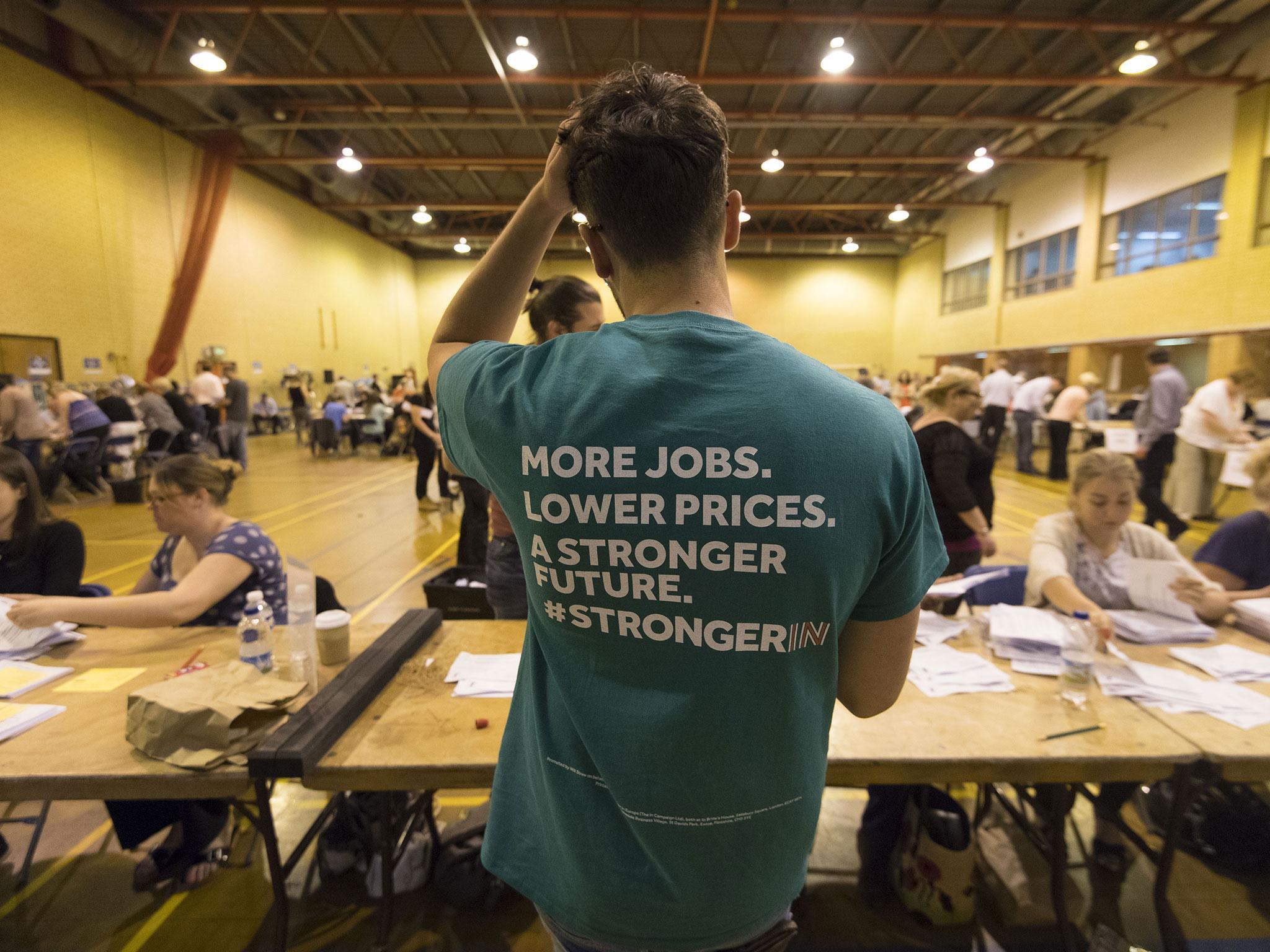After Brexit, we do need a new political party – just not like the ones we've already got
I am arguing for a change in our political culture. I hope we shall soon come to a new dispensation: people know best


Your support helps us to tell the story
From reproductive rights to climate change to Big Tech, The Independent is on the ground when the story is developing. Whether it's investigating the financials of Elon Musk's pro-Trump PAC or producing our latest documentary, 'The A Word', which shines a light on the American women fighting for reproductive rights, we know how important it is to parse out the facts from the messaging.
At such a critical moment in US history, we need reporters on the ground. Your donation allows us to keep sending journalists to speak to both sides of the story.
The Independent is trusted by Americans across the entire political spectrum. And unlike many other quality news outlets, we choose not to lock Americans out of our reporting and analysis with paywalls. We believe quality journalism should be available to everyone, paid for by those who can afford it.
Your support makes all the difference.Like a distant drum beat becoming ever louder, so talk of creating a new political party intensifies. I first heard the sound when I read Professor Stein Ringen’s blog dated 21 March. He stated flatly: “British parliamentary democracy now runs without opposition. The centre-left, the main population constituency, is without representation. This is the time to bite the bullet and form a new political party.”
Then, over the weekend, Andrew Grice reported in The Independent that “the chattering classes are chattering about creating a new centre party again. Pro-Europeans in Labour, the Conservatives and Liberal Democrats make common cause over their concern that the UK might be heading for an economically damaging hard Brexit.”
Nick Clegg intervened on Monday, though not going so far as to propose a new political party. As a recent Lib Dem leader, he could hardly do that. He told The Guardian, in an interview: “No one can beat the Conservatives on their own, so it’s not that complicated – we’re condemned to work together … I would welcome and embrace more thinking and writing and talking and speaking amongst liberal Conservatives, one-nation Conservatives, Liberal Democrats, centre-ground Labour folk who want to mount a proper ideological response to [Theresa May’s Government].”
We should be more ambitious than this. After a 40-year period when it was thought that governments knew best (roughly late 1930s to late 1970s), followed by the belief that markets knew best (late 1970s to roughly now), I hope we shall soon come to a new dispensation: people know best. A “fresh start” party should be highly consultative. In other words, I am arguing for a change in our political culture.
In his book, Democratic Legitimacy, the French political scientist Pierre Rosanvallon wrote: “Citizens are increasingly conscious of the way in which they are governed. They want to be listened to and reckoned with. Around the world, survey after survey has shown that a central concern of people everywhere is that political leaders should share their experiences and consult them about what ought to be done.”
How might this be done? Here is one idea. Let asylum cases, for instance, be decided by asylum juries comprising ordinary citizens rather than by immigration officers employed by the Home Office. This would be more fully democratic than the present system.
A new political grouping should also draw its inspiration from civil society. Civil society has a notion of the common good; when concerned citizens see a shortfall in social provision, they organise themselves to do something about it. Their initiatives can be ad hoc and informal, or more permanent, such as charities, community organisations, professional associations, pressure groups and think tanks.
The establishment of food banks is an example of what civil society can achieve. The Trussell Trust opened the first food banks in Britain in 2000 when one of the founders started the Salisbury Foodbank in his garden shed and garage, providing three days of emergency food to local people in crisis. In 2004, the UK Foodbank Network was launched to teach churches and communities how to start their own banks. The latest statistics show that more than 1m three-day emergency food supplies were given to hard-pressed people in 2015-16.
Unfortunately, however, because national politics has become a lifelong career, few members of civil society think of standing for election to the House of Commons. The only recent examples are Martin Bell, a former broadcast war reporter who became MP for Tatton from 1997 to 2001, and Richard Taylor, a doctor and former Royal Air Force officer, who served as an independent MP for Wyre Forest between 2001 and 2010.
This reluctance will need to be overcome if there is to be a return to the concepts of public service that were commonplace in politics before the emergence of a power-hungry political class, and which have long flourished abundantly in civil society.
And if there is to be a new party, it should dispense with traditional political labels. If a group of like-minded people committed to launching a new political party is assembled, their first task should be to draft an election manifesto with the help of experts and deliberative polling techniques that take into account the opinions of ordinary people.
No doubt some of the policies that came out of this process could be classified as left-of-centre or as right-of-centre by the labelling systems of earlier political ages. But that would be irrelevant.
Join our commenting forum
Join thought-provoking conversations, follow other Independent readers and see their replies
Comments